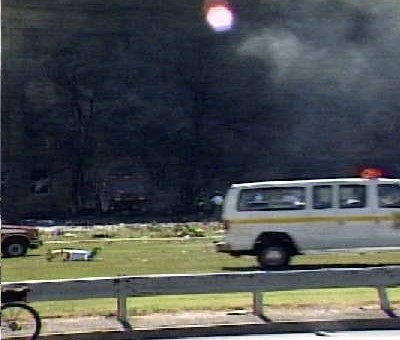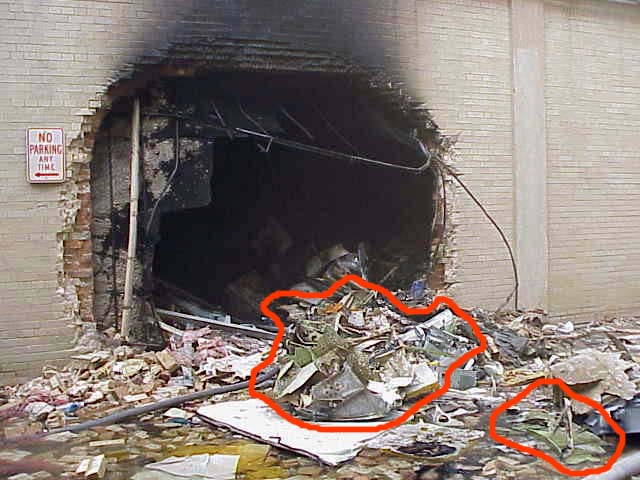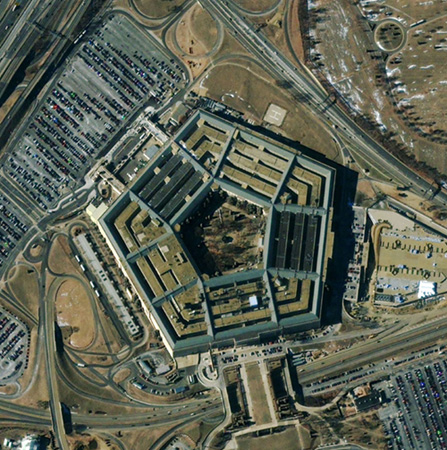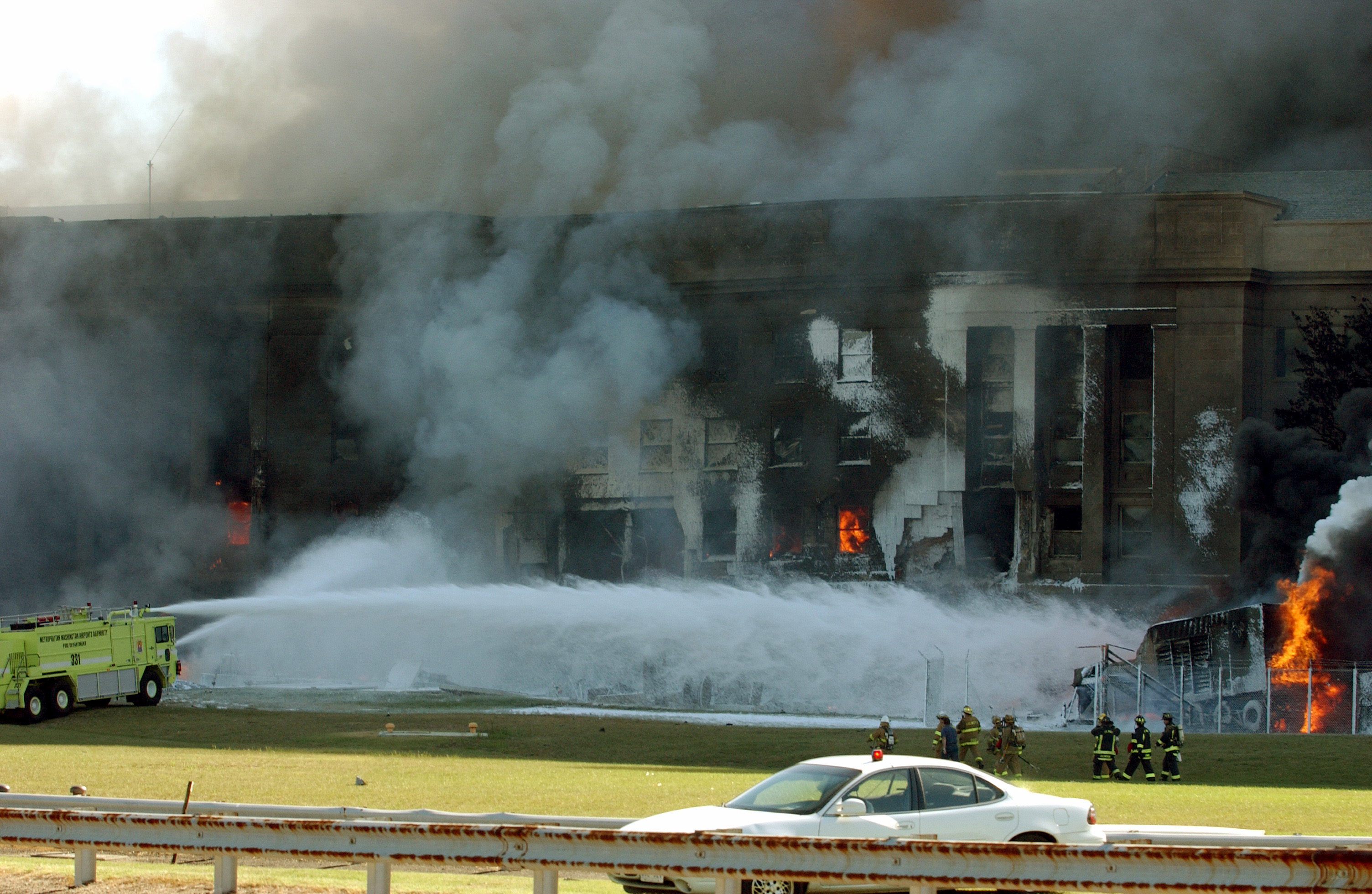Suspicion quickly fell on al-Qaeda, and in 2004, the group's leader Osama bin Laden, who had initially denied involvement, claimed responsibility for the attacks. Al-Qaeda and bin Laden cited U.S. support of Israel, the presence of U.S. troops in Saudi Arabia, and sanctions against Iraq as motives for the attacks. The United States responded to the attacks by launching the War on Terror, invading Afghanistan to depose the Taliban, which had harbored al-Qaeda members. Many countries strengthened their anti-terrorism legislation and expanded law enforcement powers. In May 2011, after years at large, bin Laden was found and killed.
Early on the morning of September 11, 2001, 19 hijackers took control of four commercial airliners en route to San Francisco or Los Angeles after takeoffs from Boston, Newark, and Washington, D.C. Planes with long flights were intentionally selected for hijacking because they would be heavily fueled.
Media coverage was intense during the attacks and aftermath, beginning moments after the first crash into the World Trade Center.
At 8:46 a.m., five hijackers crashed American Airlines Flight 11 into the World Trade Center's North Tower (1 WTC), and at 9:03 a.m., another five hijackers crashed United Airlines Flight 175 into the South Tower (2 WTC).
A fourth flight, United Airlines Flight 93, under the control of four hijackers, crashed near Shanksville, Pennsylvania, southeast of Pittsburgh, at 10:03 a.m. after the passengers fought the hijackers. Flight 93's ultimate target is believed to have been either the Capitol or the White House. Flight 93's cockpit voice recorder revealed crew and passengers attempted to seize control of the plane from the hijackers after learning through phone calls that similarly hijacked planes had been crashed into buildings that morning. Once it became evident to the hijackers that the passengers might regain control of the plane, the hijackers rolled the plane and intentionally crashed it.
Some passengers and crew members who were able to make phone calls from the aircraft using the cabin airphone service and mobile phones provided details that there were several hijackers aboard each plane; that mace, tear gas, or pepper spray was used and that some people aboard had been stabbed. Reports indicated hijackers stabbed and killed pilots, flight attendants, and one or more passengers. In their final report, the 9/11 Commission found the hijackers had recently purchased multi-function hand tools and assorted knives and blades. A flight attendant on Flight 11, a passenger on Flight 175, and passengers on Flight 93 said the hijackers had bombs, but one of the passengers also said he thought the bombs were fake. The FBI found no traces of explosives at the crash sites, and the 9/11 Commission concluded the bombs were probably fake.
Three buildings in the World Trade Center Complex collapsed due to structural failure. The South Tower collapsed at 9:59 a.m. after burning for 56 minutes in a fire caused by the impact of United Airlines Flight 175. The North Tower collapsed at 10:28 a.m. after burning for 102 minutes. When the North Tower collapsed, debris fell on the nearby 7 World Trade Center building (7 WTC), damaging it and starting fires. These fires burned for hours, compromising the building's structural integrity, and 7 WTC collapsed at 5:21 p.m. The Pentagon also sustained major damage. At 9:40 a.m., the FAA grounded all aircraft within the continental U.S., and aircraft already in flight were told to land immediately. All international civilian aircraft were either turned back or redirected to airports in Canada or Mexico, and all international flights were banned from landing on U.S. soil for three days. The attacks created widespread confusion among news organizations and air traffic controllers. Among the unconfirmed and often contradictory news reports aired throughout the day, one of the most prevalent said a car bomb had been detonated at the U.S. State Department's headquarters in Washington, D.C. Another jet—Delta Air Lines Flight 1989—was suspected of having been hijacked, but the aircraft responded to controllers and landed safely in Cleveland, Ohio. In a September 2002 interview, Khalid Sheikh Mohammed and Ramzi bin al-Shibh, who are believed to have organized the attacks, said Flight 93's intended target was the United States Capitol, not the White House. During the planning stage of the attacks, Mohamed Atta, the hijacker and pilot of Flight 11, thought the White House might be too tough a target and sought an assessment from Hani Hanjour, who would later hijack and pilot Flight 77. Mohammed also said al-Qaeda initially planned to target nuclear installations rather than the World Trade Center and the Pentagon, but decided against it, fearing things could "get out of control". Final decisions on targeting, according to Mohammed, were left in the hands of the pilots.
Early on the morning of September 11, 2001, 19 hijackers took control of four commercial airliners en route to San Francisco or Los Angeles after takeoffs from Boston, Newark, and Washington, D.C. Planes with long flights were intentionally selected for hijacking because they would be heavily fueled.
Media coverage was intense during the attacks and aftermath, beginning moments after the first crash into the World Trade Center.
 the Pentagon on 9/11 |  the Pentagon on 9/11 |  9/11 Pentagon |  after the September 11 |  The September 11th Attack on |
 Pentagon Grounds |  9/11 Pentagon attack |  9/11 Pentagon Damage Immediate |  Journal of 9-11 |  New simulation shows 9/11 |
Some passengers and crew members who were able to make phone calls from the aircraft using the cabin airphone service and mobile phones provided details that there were several hijackers aboard each plane; that mace, tear gas, or pepper spray was used and that some people aboard had been stabbed. Reports indicated hijackers stabbed and killed pilots, flight attendants, and one or more passengers. In their final report, the 9/11 Commission found the hijackers had recently purchased multi-function hand tools and assorted knives and blades. A flight attendant on Flight 11, a passenger on Flight 175, and passengers on Flight 93 said the hijackers had bombs, but one of the passengers also said he thought the bombs were fake. The FBI found no traces of explosives at the crash sites, and the 9/11 Commission concluded the bombs were probably fake.
 Into 9-11 - part 2 |  Pentagon: What happened on 9/ |  of the September 11, |  Sunday, September 11, 2011 |  The Pentagon Attack: What the |
ATTACKS PENTAGON 9/11 ring |  Into 9-11 - part 2 |  The Pentagon, September 11 |  9-11 Review: Pentagon Impact |  Pentagon 9/11 Memorial: |

No comments:
Post a Comment